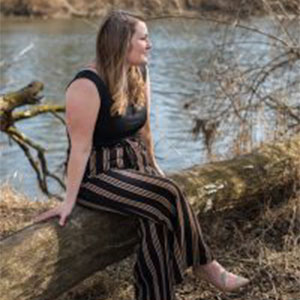
by Jessie Cooper | Jan 18, 2021
Last week I wrote to you about being lost within the forest of life. I believe as humans we all get lost during periods of our life for a multitude of reasons. In the forest, there are both light and dark paths. It’s up to us to navigate them. Underneath the leaves that crunch beneath our feet lie the reasons we are lost. The sun guiding us out is the light within us reminding us that we are worthy of love and belonging.
So what are these leaves that have distracted us from our true knowing, worth, and belonging? On the surface, they look simple and can be seen as harm created by the outside world. The world and humans within it can easily present us with pain. The pain that stays is beneath the surface–beneath the leaves. You see, when we are presented with hardship we have two choices. The first is to let it roll off us and move on and the second is to metabolize it and take it as our own.
Working Through Hardship
None of us are born with a guidebook of what is real and what isn’t. We’re born into this world trusting it and the people around us to guide us. When the world and people around us tell us we are unworthy, broken, or can’t provide for our basic needs it becomes a scary place. We then start to look outside ourselves for confirmation that we are in fact worthy, whole, and deserving of having our needs met. This is true for every human being. If you are measuring your worth by taking from others mentally or physically, however, you are not giving yourself what you need. You are stealing and continuing the cycle of abuse.
As human beings, so many of us stay lost like this. Thinking that our self-worth is out there and not in here behind our beating hearts. I know I get lost like this. I want to feel love just like everyone else and have suffered abuse which still makes me feel small and broken. I tend to overperform and overachieve from a place of wanting to prove my worth versus creating because it brings me joy. I’m lucky that I have an amazing work team who calls me on my bullshit and tells me to go take care of myself when I’m trying to pull that crap at the office. I’m even working on building a tribe at home that calls me out on this behavior. As I reflected this past week on why I do this, I found a common denominator; rejection. Let me say more.
Moving Past Rejection
When I’m looking at myself and when I’m overachieving or over-functioning at home I’m trying to create external worth. This is deep-rooted within me as a woman wanting to please people, a survivor of domestic violence, and my own longing to be loved. When I feel rejected it can hurt like hell because I have so much love to give and want to receive it. As I sat with this thought over the past week I began to think about the rest of the pain of the world and the work of Brene Brown regarding shame. Shame tells us we are small, unlikeable, and there is something to hide about ourselves from the world. Shame tells us we are rejected.
I believe when people feel rejected by the world the only way to fully heal is to love ourselves with our whole hearts despite our shortcomings as human beings. To find our way back to ourselves the only way home is to feel the hurt. If we don’t do this we can hurt other people or deepen our own pain. We must acknowledge that we have a need not filled, a desire not met, a broken dream, or feelings hurt. I believe this is the single most important thing those who are suffering can do: hold the pain and honor it. If we do not honor our pain and cherish ourselves we lash out at the world or inward on ourselves; often both. When we lash out at the world due to pain we hurt other people and make them suffer because we are suffering and running away from our fears of never belonging. When the pain is lashed inward it can create conditions like depression and anxiety.
Acknowledge Your Pain
This I know to be true. Being rejected and having your dreams broken hurts like hell. Yet if we don’t acknowledge that we are hurting we will hurt other people. Hate begets hate. When a person stuck in hate finds a person who doesn’t know their full worth, abuse can set in. Each person feels rejected and one is lashing out while the other is taking the lashing. In a situation like this, both people feel rejected. Don’t you see? If the person lashing out stopped and felt their own hurt they would not hurt another person. If the person being lashed knew their own worth they could gently ask the person lashing out to leave. If each person knew their own worth they would take the time to heal because knowing our worth protects our hearts, spirits, and minds.
The only way to unturn the leaves is to be brave enough to look at what’s beneath them and find out what’s keeping us from our worth. As we unturn each leaf of pain we’re able to hold that pain and provide care for ourselves. Rejection is just the outside world’s way of saying, “I’m hurting myself, I’m insecure, I have pain.” Don’t swallow that. Know your worth and walk on–it’s a bright day outside.
Xoxo,
Jessie
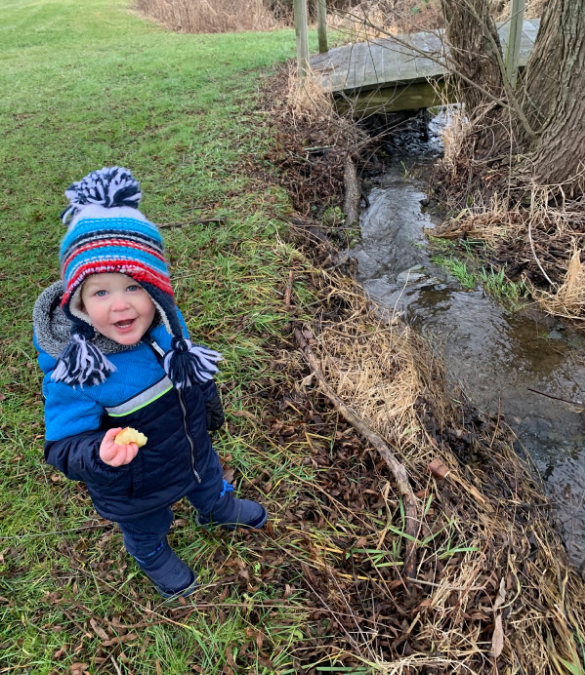
by Jessie Cooper | Jan 11, 2021
As a parent, there are a million joys that come from getting to know your little humans. I’ve always been fascinated by nature vs. nurture. The thing that has taken my heart by storm, however, is children’s absolute knowledge and love of themselves without reservation. My number one job as a mama? Don’t let the world take it from them as it has taken from me and so many others. Teach my sons to honor their knowing and worth.
Looking at Ourselves
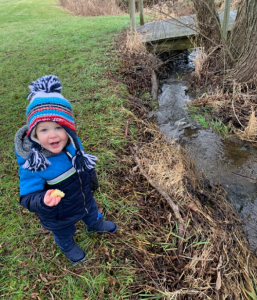 There is an awakening in coming through trauma. It’s like walking through a forest all night and finally seeing the sun slowly peek in to remind us of the love inside of us. The walk is terrifying but deep inside you know the sun always rises; that your worth is real. Yet so many of us get lost in the forest and are never able to guide ourselves back to the sun.
There is an awakening in coming through trauma. It’s like walking through a forest all night and finally seeing the sun slowly peek in to remind us of the love inside of us. The walk is terrifying but deep inside you know the sun always rises; that your worth is real. Yet so many of us get lost in the forest and are never able to guide ourselves back to the sun.
How did we get there, to that dark forest? We get lost and follow the compass of the world instead of the compass of our hearts thinking the answer to happiness is out there. We listen to the noise of the world around us telling us things like, “I’ve got what you need, you are not enough, you are broken.” That noise is lying and pulling all of us away from ourselves.
With the world telling us that happiness is out there and we are inherently broken, our knowing from within gets buried. Materialism, greed, judgment, and power are running our world dry and hearts dry. Yet how many of us have gone through this life thinking if we get the next best car, outfit, house, lifestyle, job, or position we will in fact be happy? That the desires burning in our own hearts are somehow wrong? Then, from the people lost in these lies, we’re also taught what to value and build entire societies based on their belief of scarcity and self-hate. That everyone else must have something that we don’t. That we should all be afraid and protect what’s ours. That right there? That’s how wars get started and Capitals get raided.
This feeling is an emptiness inside of the righteous who are unwilling to look inside themselves and say, “I feel lonely, I feel unimportant, I feel sad, depressed, anxious–like I’m not enough,” and the like. It’s too painful to look inside and see what hurts, so a shield of righteousness is created. Then, those of us who believed the words the world crafted from fear get lost. When we say that our problems come from other people we are simply fleeing from ourselves.
Getting Out of the Forest
If you are of the opinion that your happiness is contingent on someone else giving you something they took from you know this; you are lost in the forest. The world is full of joy, beauty, and happiness but this joy is found in a leaf crackling under bare feet in the fall, not in your new Mercedes. It’s in seeing a child in need of a meal getting to break bread with their entire family. It’s in learning who in the world is without water and then getting water to them. It’s in extending grace to ourselves when we are unkind, then trying again. It is in the pure knowing that inside of our own hearts is more than we have ever needed. That we are all equal. That when a person is suffering the bravest thing we can do is extend a hand not a firearm.
My grandpa was in the navy during World War II. One year, at a family reunion, he brought his trunk from the war and began sharing its contents with us. As he told us the story of his ship being hit by a kamikaze he pulled a spark plug out of his trunk. Grandpa reflected on how as the Japanese fighter lay dying on the ship, his shipmates began shouting and spitting on him. My grandpa recalled telling his fellow shipmates to stop and have respect; this man had a mother too.
So much of humanity is lost in the darkness of the forest believing they will find the path out through hate, force, self-defense, and self-righteousness. If they continue to believe they will find the path this way they’ll be lost their whole lives. Others are lost believing the stories being told by those lost in hate. Remember this; we were all tiny children who knew fully who we were before the world told us otherwise. I’ll tell you all what I tell my sons, “joy is your birthright.” I’m also in need of a daily reminder to myself because joy is my birthright too.
Changing Our Future
Collectively, I believe we are finally shifting within the world to say these fear-based behaviors are not true. It’s a small voice and a loud voice. Behavior rooted in fear is actively damaging to the world. To shift from this behavior, we have to be strong enough to know ourselves and stand up for love and against the damaging behaviors of others; to those still lost in the forest. The only way to do this is to shut down the noise of the world knowing we are enough just as we are. That we are worth love, belonging, joy, and happiness. That we can step away from any path taking us from the sun and choose again.
Through the discomfort of shedding every single thing that takes you from your knowledge, you can be reborn into who you always were before the world told you lies. For you too were once a tiny child fully in love with yourself and the breeze in the trees.
Xoxo,
Jessie
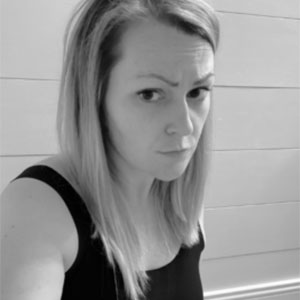
by Jessie Cooper | Jan 4, 2021
It’s Monday morning and I’m sitting in my office, outside of the house for the first time since March. I also dropped off my son, Dametrius, at in-person school at 7:15 AM today. After three weeks as my son and 10 months of e-learning, my baby finally walked into school. Up until a year ago, I thought the first baby I would give away to school was Henry; it sure doesn’t get any easier, even when they’re 15.
So it’s a new chapter in our lives; Dametrius is out of the house for school and I’m finally strong enough to pick up my writing on a Monday morning and leave my little sons with their grandparents. As many of us are recovering from trauma, leaving the safe space we’re created is hard stuff. It’s also incredibly brave.
The last time I wrote to you I shared that collectively we are all walking through trauma during the pandemic and that when trauma comes change is born. In re-reading “Untamed,” over break, I was reminded that there are two different types of pain. Glennon writes that the first type of pain is the fear that is born from working against the truest form of ourselves and the second type of pain is choosing to burn a life keeping us from the truest form of ourselves to the ground. This resonates with me deeply, I’d like to share more.
Dealing with Types of Fear
I’ve written to you about becoming a love warrior over the past six months; a person who knows in their bones they are good and true despite what the world is saying about them. I don’t know how much this still sits well with me today. I think there is such a truth to this, yet so much more to uncover.
You see, the first pain that Glennon writes about are the fears we all get lost in throughout our lives. It is the fear that propels us to abandon ourselves for the sake of others. The fear that tells us that fitting in and being accepted is the goal of life and once we finally listen we’ll be happy. This fear is a Goddamn liar. I listened to it for far too long.
As a woman, I’ve been raised to believe many lies and am lucky enough to have parents who never treated me differently because I was a girl. My mom is a feminist through and through and my dad is a champion of women. This gave me the courage to know that I was born equally but it didn’t give me the knowledge I needed to fight society as I entered into it.
I think that was part of my fear of sending Dametrius to school today. You won’t meet a wiser, kinder soul than my son Dametrius and my child has walked a path many of you cannot imagine. He’s still himself every day. “Don’t you lose you in there baby” I told him, “don’t fit in.” Me? I know school is where I began to lose myself and built up a series of lies from society from there on out.
Overcoming Personal Fears
Growing up, I believed from a young age that how I looked was the first key to acceptance from my peers. I developed an eating disorder in high school to lose the weight I thought was holding me back from fitting in. I believed that finding the perfect boyfriend-turned-husband would show the world how lovable I was and that marriage was the ultimate community and personal goal.
There’s more. I believed that I needed to be polite, accommodating, and put my needs second to everyone, including my children. I believed that the more I looked and behaved in a way that matched society norms the happier I would be. This is the first fear, this is what took me down the road of abandoning myself for so long.
I wrote to you all that I made the choice to buy a farm in Ohio this past summer in order to follow my true path. In reality, this choice was delivered to me from the universe to burn every fear I had to the ground and build a life worth living. My farm, family, and God have saved my life. When I couldn’t choose it for myself the second pain was chosen for me.
This past fall-into-winter I have done something I have never done before; I felt every single piece of pain I was walking through. I held it, felt it, breathed it in, and let it have a place. It was not pretty. At best it was animalistic. I spent hours crying on the floor while my babies slept, screamed to the skies while walking in my pasture, and succumbed to the raw pain that was needed to come back home to myself. I’m just now starting to see the clearing through the trees, and this clearing is not from the world: it’s from myself saying, “welcome home.” I’ve allowed this pain to shake me to my roots and began believing that the only thing that brings true joy is belonging to ourselves.
Someday I’ll tell you about the life event that has caused such a change in me. I’m not ready yet. What I am ready to do is tell you all that we can in fact do hard things. That this past year has been a collective of grief through the pandemic and personal pains. What pain will you choose?
Choose Your Pain and Come Home
Will you choose the pain and fear that tells you to succumb to the expectations of others? Or will you choose the pain, no matter how raw, that brings you home to yourself? If you continue to follow me, know this; I do not give a damn about what others think of me anymore and will ask myself “am I losing myself,” every second of the day I make choices. I will not put myself second just because I was born a woman or question the skills, talents, gifts, and passions that pulse through my veins. And I will not care if I make you or anyone else uncomfortable because I refuse to be uncomfortable with myself ever again.
We all have collectively been stopped in our tracks because of the pandemic. I believe I asked myself the question “Jessie, are you going to keep living in the fears of the world or come home to yourself?” Right now I’m coming home to myself and leaving the pain behind.
Readers, what about you? Will you walk with me? Would you like to try? I can help you to stay true to yourself. I have walked through pain that I thought was deep enough to kill me and through feeling it I was born. It’s worth it, coming home.
Xoxo,
Jessie
In loving dedication to my sister-in-law, brother-in-law, mom, and dad who have all held me in their arms these past three months.
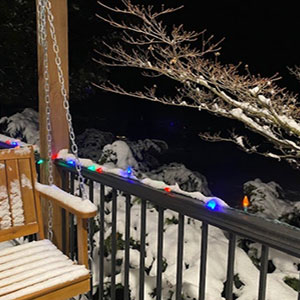
by Jessie Cooper | Dec 17, 2020
As fall comes to an end I’m sitting on the farm surrounded by freshly fallen snow. It’s as though the universe is painting a visual for this season of life. These past few months have been extremely difficult for me. In the middle of a growing pandemic and the pressing matter of racial inequality, I know I’m not alone. Collectively as a nation and world, we’ve had to adapt overnight to changes in our culture, find ways to address what seems like trauma after trauma, and somehow keep putting one foot in front of the other. Yet life is still around us, no matter the valley we’re in.
As a business owner of a company that makes my heart swell with pride, there are so many things I want to tell you. I want to tell you about the years before Instructional ABA Consultants was born–what it was like to hold the hands of mothers whose children were being institutionalized. I want to tell you how Applied Behavior Analysis changed everything for each and every client I worked with. Of my deep love of a man named David, my favorite client of all times.
I want to explain how through tears, sweat, heartache, brilliance, vulnerability, and grit my company was shaped; this came from me and the employees who built it. I want to create resource after resource for children with autism, families of these young children, and each person in the world who feels like their voice doesn’t matter. All of these things burn inside my heart.
Yet today, my win was that I got up without crying. Was this anyone else’s win?
Taking Time After Trauma
In the middle of trauma or in coming out of trauma it’s easy to expect ourselves to quickly go “back to normal.” I remember this vividly when I was awakening from postpartum depression after Henry was born. I was so joyful to feel like myself again. I wanted to pack my days with everything “Jessie” I could think of. Doing this, while very tempting, would have flattened me. In coming out of a depression I had to honor what my body and mind had been through. To choose wisely what I would add to each day.
So what is normal and how do we choose what to add? Today we’re all so indicated by social media and marketing telling us what our lives should look like. On top of that, we’re socially conditioned to be a certain way or want certain things based on our gender, race, sex, and age. There are so many opinions swirling around us on who we should be and how we should behave. Trauma, like the COVID-19 pandemic, threatens this unnatural order.
Many of us were on autopilot prior to COVID-19. Then we were forced to stop. I believe this is true with any trauma or major life event. It could be a cancer diagnosis, the loss of a loved one, an injustice toward a loved one, a divorce, your own mental health taking an unexpected turn, financial upset–the list goes on and on. Trauma is part of our lives and it’s the part of our lives we don’t talk about enough.
The scariest part? If a person does speak up about their own personal traumas, the systems supporting us or the people around us often bring shame. Shame to keep us small and silent. If you feel pain, scared, or threatened don’t ever let anyone tell you to stay quiet. Speak up every single time regardless of what others say around you.
What We Can Do to Recover
So what can we do? What can I do as 2020 comes to a close and the pandemic we thought would be over by June continues? Wasn’t it just yesterday I was laughing about toilet paper and schools closing over margaritas with friends? We honor the season then get the hell out when it’s time to get out. That’s what we do.
Winter comes every year and our busy-ness becomes harder to keep. COVID took much of that busy-ness already. Personally, I hope it never comes back. This season of stillness is a natural order of things. We as humans are not meant to be on high speed every second of every day. We are also not built to impress and conform. We’re built to breathe freely, live freely, and love fully.
To do this we must honor where we are in life and love ourselves just as much when we’re crying on the bathroom floor as we do when we’ve achieved a goal. Grief comes for all of us. When we can offer ourselves compassion and grace the season is honored. On the other side of winter is spring where the flowers grow. Yet if we spend our lives wishing for beautiful flowers we’ll miss the cold beauty of a bare tree.
A new season is coming. Sit here darling ones. Hold your heart if you’re crying and take a moment to breathe the sweet winter air.
Xoxo,
Jessie
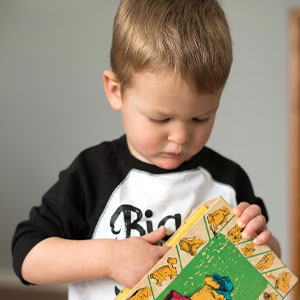
by Jessie Cooper | Dec 10, 2020
If you’re a mom of young children like me I’m sure you’ve had the thought of going to the zoo once or twice. It goes something like this:
The local zoo announces a baby. Let’s say an elephant is born so of course, you go rushing! You get to the zoo (pre-COVID, maybe) and see the beautiful baby elephant, just days old, walking behind their mama. In a short moment, you think back to your child’s infanthood and think, “baby boy(or girl) you had fewer skills than an elephant.” Infant humans, while incredibly squishy, cute, and forever smelling of Dreft and lavender, come into the world with no survival skills.
There are thousands of articles on the importance of early intervention. I spent my bachelor’s degree diving into many of them, followed by stocking my brain with new findings for the past decade. This is in part because I am a researcher by trade. The other part is because I am a nerd for human development. It fills my bucket. In my blog today I’m going to try and give you a snapshot of why development from infancy through kindergarten is so vital. I’m also going to talk about why it’s important for children with autism and our amazing clinics at Instructional ABA Consultants.
Focusing on Child Development Early
OK, let’s get started by going deep. Human infants are born without any skills because their brains need more time to develop than all other mammals. If babies grew into functional toddlers in the womb they could not come out of the birth canal. Women’s bodies are incredible but they aren’t magic; there is a limit to the size of what we can birth (yes, I’m grimacing as I’m writing this because medication-free birth with a newborn is magical, but birthing a toddler? Um…).
So we get these tiny humans, who are desperately in need of being cared for–it’s almost like they are in the womb for an extra three months after delivery. Then they begin to wake up. I remember when both Henry & Declan found their toes and fingers in amazement around three months old.
During this first year of life, thousands upon thousands of neuroconnections are made. Babies are quickly developing their brainpower, motor skills, and language through these high-speed connections. To do this babies need a few simple things. Infants need to be nurtured, to know that when they have a need their parent responds. This creates a secure connection and lets baby know the world is safe. Babies need food and lots of sleep. Once these basics are covered we move into the two most important things; environment and socialization.
Early Socializing & Environments
I like to think of babies, toddlers, and children as little scientists learning through cause and effect. The environment is a huge blank canvas for our children to discover how their world works. Socialization is the tool children need to survive in our culture.
In their early childhood years, these two pieces are so incredibly important because of the rate children can learn. From infancy to year five, children will learn more than any other time in their lives. “What about college,” you say? Nope. These foundational years are the years where connections are made in the brain that last a lifetime.
As a professional, I love looking at how all this heavy lifting helps to shape the outcome of children’s lives. As a mama, I drove myself crazy after Declan was born and I realized I was basically running a school in my home for Henry. This wouldn’t be possible with two kids under two.
This was insanity in hindsight. This was also when I was personally able to take a deep breath and remember what I knew. The two most important things are environment and socialization. It’s not about how “cute” my day is with my boys. It’s about how often they are able to explore and engage. These days you won’t really find me teaching at a table much. Instead, you’ll see a “yes” environment set up (more on this later but basically a safe space to learn), technology out of reach (no TV/no Tablets on the regular as these devices delay both language development & socialization), and lots of talking.
Henry and Declan get to flex their learning muscles through exploration and language. I get to flex my relaxation muscle by not trying to do it all. I’m lucky in that way because my children do not need intervention. If they did I would not be able to sit back because these experiences would need to be contrived. That’s why ABA is so helpful for young children with autism. Here’s why.
The Importance of ABA Therapy for Autism
When a child has autism the neural pathways or roads in the brain that tell that child how to communicate and process information are not forming, either naturally or as quickly as a neurotypical child. The connections are still there to be made but without intervention, a child with autism can’t connect the dots. What this looks like in each child with autism is different but always results in some form of socialization or communication developmental delays. This leaves the child with autism lost in their social world and wondering how to connect.
In applied behavior analysis (ABA), behavioral scientists (BCBAs) are able to assess the language and communication skills missing in early childhood based on developmental milestones. Children with autism are gifted learners but they learn differently because their neural pathways are routed differently. Through assessment, BCBAs are then able to figure out how our little students learn, what skills are missing, and how to connect those missing dots. This happens in three really key ways.
The first is one on one therapy (think personal trainer at the gym) to really teach to the student. The next is to help the child with autism apply what they are learning with their peers. Remember, socialization is hard but children who are neurotypical learn from other children. To strengthen the socialization neuropathway, children with autism need to practice these skills with kids their own age. The last is transferring learned skills back to mama and papa. If a child with autism is in therapy and can do all these skills at a treatment clinic but not at home, the neural pathway is not fully formed.
Therapy at ABA Consultants
Instructional ABA Consultants runs autism clinics for children ages 2 ½ to 6 years old (in addition to our home-based therapy for older children). Our clinics (Naperville & Oak Lawn IL, Castle Rock CO, and coming soon Northside Chicago) have a Preschool Instructor designing the socialization component of our students’ days and BCBAs designing the individualized instruction. Parents are at the core of treatment goals and together we’re helping their precious children make connections in their early development.
Whether you’re a parent of a neurotypical child or a child with autism know that your child’s early years are precious. While we all can dream of our children functioning like that baby elephant walking around fully skilled, the reality is human babies and children need shaping. We’re a social species.
So set down the tablet today, pack up all the toys the marketing teams said you needed, and let your children explore and enjoy. If your child isn’t exploring, jump in and help. If you need help teaching these skills because your child has autism (or this is a new way to parent for you) reach out. We’re all in this crazy world of parenthood together.
XOXO,
Jessie



 There is an awakening in coming through trauma. It’s like walking through a forest all night and finally seeing the sun slowly peek in to remind us of the love inside of us. The walk is terrifying but deep inside you know the sun always rises; that your worth is real. Yet so many of us get lost in the forest and are never able to guide ourselves back to the sun.
There is an awakening in coming through trauma. It’s like walking through a forest all night and finally seeing the sun slowly peek in to remind us of the love inside of us. The walk is terrifying but deep inside you know the sun always rises; that your worth is real. Yet so many of us get lost in the forest and are never able to guide ourselves back to the sun.


